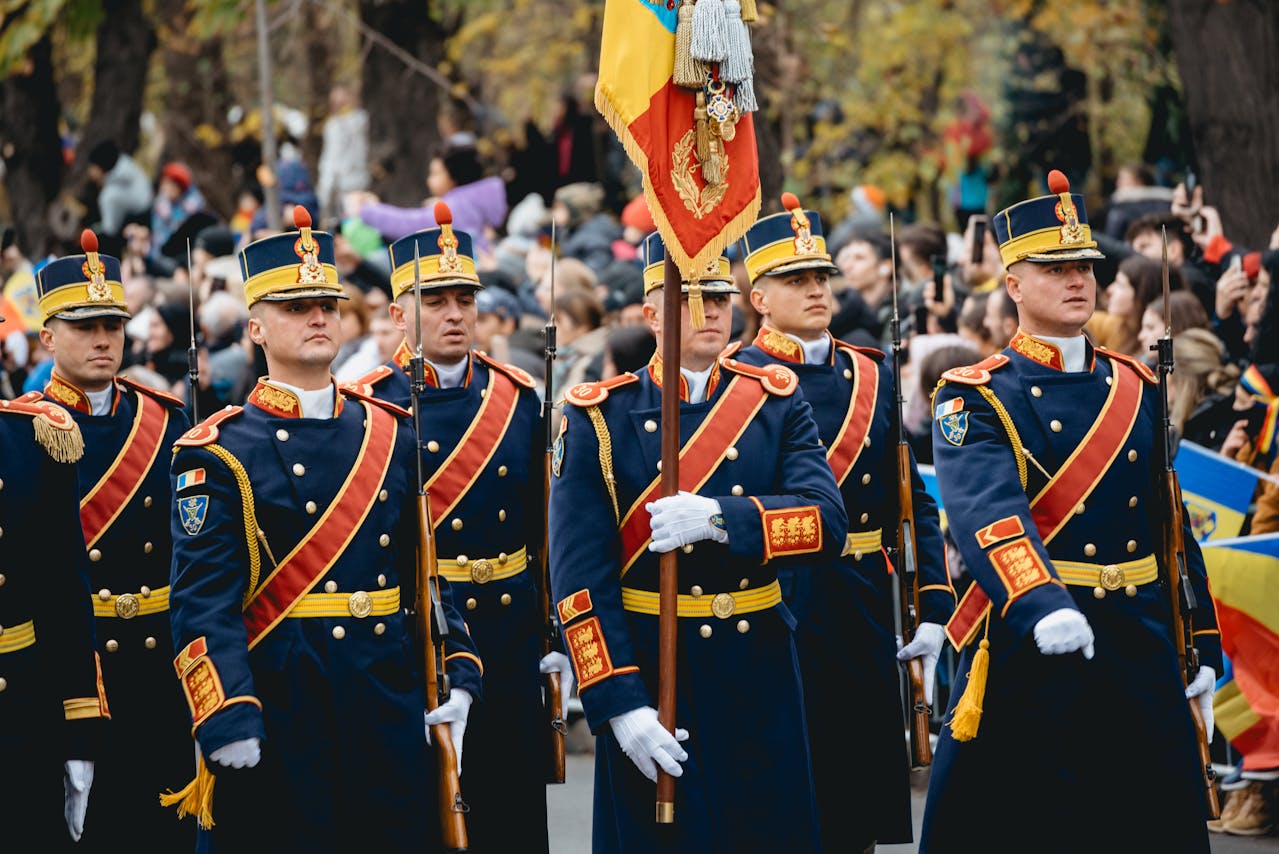If you read the headlines in the legacy media, they have trumpeted the fact that Romania’s establishment parties edged out nationalist parties in the December 1st legislative elections. This is, in the strictest sense, true. However, this has to be considered in light of the fact that in the last parliamentary election in 2020, the Alliance for the Union of Romanians, a national-conservative party, managed to get only 33 seats of the 330 in the Chamber of Deputies. This was considered a respectable showing for a new party. One or two seats were also won by some tiny nationalist groups, but that was it. One can now say with complete candor that nationalist parties, taken as a whole, are the second most powerful political force in the country.
In this article, I will only make reference to seats won in the lower house, the Chamber of Deputies. I don’t want to overwhelm the kind reader with too many statistics. Suffice it to say that the seats in the Romanian Senate usually end up being in rough proportion to the lower house in elections in that country. Let’s look at the breakdown of all the major parties that qualified for seats:
- Social Democrats (PSD): socialist, 35 seats, 22.32%
- Alliance for the Union of Romanians (AUR): national-conservative, 65 seats, 18.28%
- National Liberal Party (PNL): center-right, 51 seats, 14.31%
- Save Romania Union (USR): center-right, 43 seats, 12.22%
- SOS Romania (SOSRO): nationalist, 27 seats, 7.73%
- Ethnic Hungarians (UDMR): minority rights, 23 seats, 6.40%
- Party of Young People (POT): national-conservative, 22 seats, 6.36%
The first thing that leaps out at you from a look at the stats is that if you add up the two national-conservative parties and the more hard nationalist SOS Romania, you get 32.37%, a large figure in a multiparty system like Romania’s. However, it’s significant to note that the leaders of SOS Romania and the Party of Young People were former members of Mr. Simion’s AUR. Either Simion is hard to get along with or Romanian nationalists like to get into ideological fights. It could be either one.
Let’s take a look at some of the nationalist and national-conservative parties and personalities. In another article for this journal, I already wrote some things about independent nationalist Călin Georgescu, who on December 1st made the runoff for President of Romania. He will face Elena Lasconi of the center-right Save Romania Union on December 8th.
The head of the Alliance for the Union of Romanians, George Simion, a national-conservative, founded the AUR in 2019 and won 9% of the vote and received 33 seats in the lower house that year. In the elections on December 1st, he increased his total to 65 seats. Simion is 38 years of age and is the holder of a master’s degree in history. Even before founding the AUR, he was an activist for uniting Romania and Moldova (another mainly Romanian-speaking country) into a single nation. Due to his activism in this regard, he is persona non grata in Moldova. In spite of what some in the international press say, he is generally anti-Russian.
SOS Romania was founded in November 2021 by two gentlemen, but by May 2022 Diana Șoșoacă took the reins. She was an AUR senator who had a falling out with George Simion and joined the fledgling party. During the 2024 European elections, SOS Romania gained two EU Parliament seats. Out of the three nationalist parties, SOS Romania is the most hardline. Ms. Șoșoacă was taken off the 2024 presidential ballot by some politicized judge for her alleged radicalism. The party is rather Euro-skeptic. Șoșoacă has held varied positions on the Russian question. She has spoken positively of the legacy of Cornelieu Codreanu. Miss Șoșoacă demands that Russia return the provinces of Bessarabia and Northern Bukovina that Russia took in 1940. As noted above, SOS Romania received 27 seats on December 1st. This was the party’s first legislative election.
Another new nationalist party on the Romanian scene is the Party of Young People (POT). This party was founded in July of 2023 by Anamaria Gavrilă, a former AUR member. She is a graduate of West University of Timișoara. Miss Gavrilă was elected to a minor post in the municipality of Deva, her hometown, in 2020. POT is a big supporter of independent presidential candidate Călin Georgescu. Like Georgescu, the Party of Young People has a big presence on the web and social media.
For a long time, 2024 will be thought of as a flowering of Romanian nationalism. One hopes it will not be a flash in the pan like the high-profile campaigns of Corneliu Vadim Tudor’s Greater Romania Party in the late 90s and early 2000s, only to fade and disappear. This time around, rather than there being one party and one leader, there are many potential nationalist leaders in the class of 2024. It will be interesting to see also how Mr. Georgescu will fare in the December 8th runoff of the presidential election.







